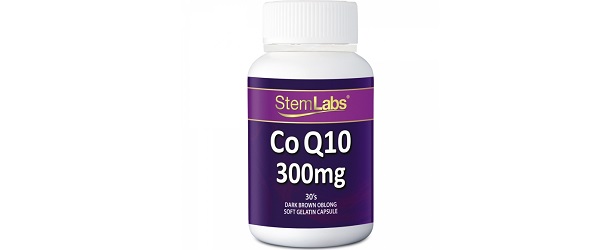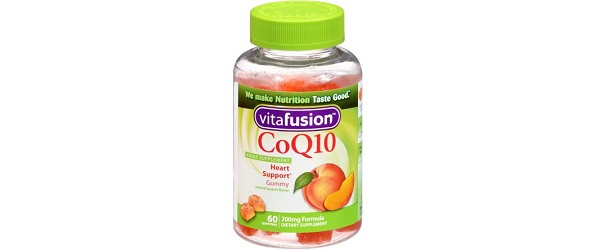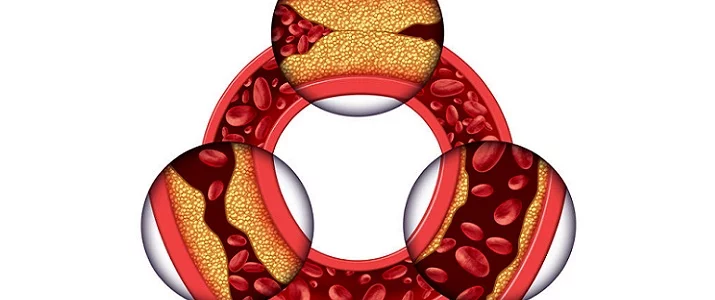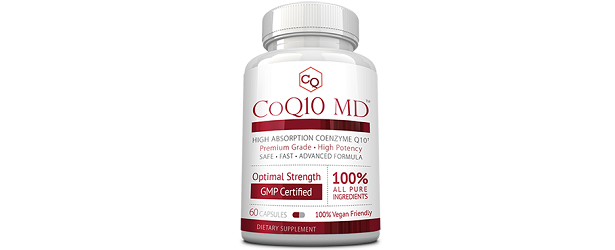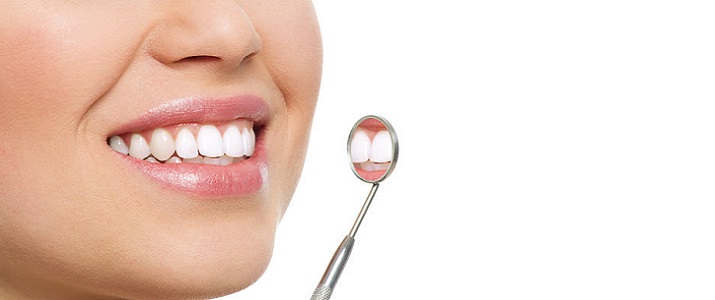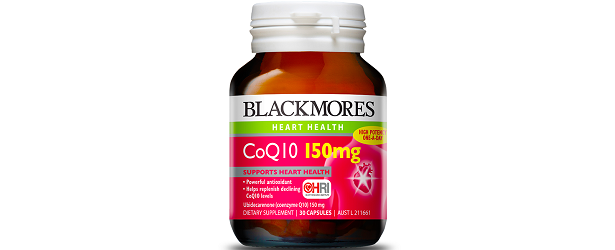
CoQ10 – Reduce Risk of Heart Failure
It is estimated that one-half of all heart failure patients die within five years of diagnosis. In the last decade, studies have found that patients with heart failure have significantly lower levels of CoQ10. To make matters worse, patients with heart failure are oftentimes prescribed statin medication, which is a type of medication that further lowers levels of CoQ10. Studies have found that older patients with heart failure who had low CoQ10 levels had double the risk of dying when compared to patients who maintained healthy levels. A recent ten-year study has found that CoQ10 can significantly improve the chances of survival for even the most severe heart failure patients. The study found that supplementing with CoQ10 can restore CoQ10 levels in patients with a deficiency which can extend lifespan and increase the quality of life. This article is going to take an in-depth look at this study to learn more about how CoQ10 can benefit patients of heart failure. Continue reading to learn more.
What Is Heart Failure?
Heart failure is defined as having the inability to pump enough blood to meet the body’s needs. This is a growing epidemic in America and it estimated that close to six million Americans experience heart failure. If you have coronary artery disease, diabetes, are overweight, have high blood pressure or have a had a heart attack, your risk of heart failure is greater. Heart failure can cause other cardiovascular issues like blood clots, stroke, and heart arrhythmias. Studies have found that patients with lower levels of CoQ10 are at a great risk of heart failure. In fact, patients with low levels of CoQ210 have twice the likeliness to die than those who maintain adequate levels.
What Do The Studies Say?
Researchers enrolled 420 patients with moderate to severe heart failure and randomly assigned them to groups that would either receive a placebo or 100 mg of CoQ10, three times a day for two years in conjunction with their usual medication. The study found that 26 percent of the placebo recipients had experienced a major cardiac event over the course of that time. A major cardiac event can be categorized as needing to be hospitalized for worsened heart failure, died from a cardiovascular cause, needed an urgent heart transplant or artificial heart support. The group that had supplemented with CoQ10 only saw 15% of patients reach an endpoint. This translates to mean that those in the placebo group had twice the risk of a major cardiac event as opposed to those taking a CoQ10 supplement.
The Risk Factors
Other risk factors that can increase the chances of developing heart failure include:
- High blood pressure
- Diabetes
- Sleep Apnea in wch the upper airway is partially or completely obstructed during sleep which will increase pressure on the heart and increase heart rate.
- Smoking
- Diet high in fat, sodium and cholesterol
Evidence strongly supports CoQ10 as having the ability to reduce the chances of suffering heart failure death. If you have a history of heart disease or failure, strongly consider talking to your doctor about the best way to implement CoQ10 into your diet to decrease your chances of dying from heart failure.
TOP 5
COQ10Treatments |
|||||
| CoQ10 Pure | Nature Made CoQ10 | Piping Rock Absorbable CoQ10 | Source Naturals CoQ10 | Natural Factors Coenzyme Q10 | |
|---|---|---|---|---|---|
| 1 | 2 | 3 | 4 | 5 | |
| Price (1 bottle) Price (6 bottles)best value |
$49.95 $139.70 |
$30.49 $182.94 |
$25.49 $139.77 |
$28.45 $170.70 |
$49.99 $299.94 |
| Overall Rating | 99.50% | 90.20% | 89% | 87.89% | 87% |
| Effectiveness |





|





|





|





|





|
| Speed of Results | Extremely Fast | Good | Average | Slow | Slow |
| Quality of Ingredients | Premium | Good | Good | Average | Average |
| Customer Satisfaction Evaluation | 99.40% | 92% | 89.78% | 88.23% | 87% |
| Safety Evaluation | Safe for Use | Safe for Use | Safe for Use | Safe for Use | Safe for Use |
| Customer Service Rating |





|





|





|





|





|
| Reorder Rate | Highest | Good | Good | Average | Average |
| Return Policy | Risk Free | Risk Free | Risk Free | No | No |
| Success Rate | 99.40% | 78% | 78.50% | 74.20% | 60% |

 Subscribe Now
Subscribe Now




